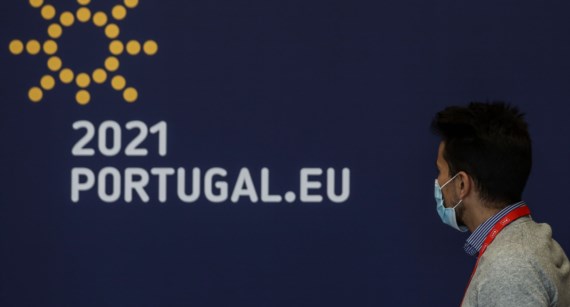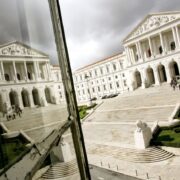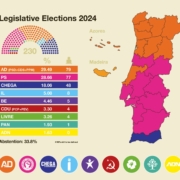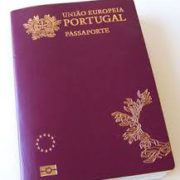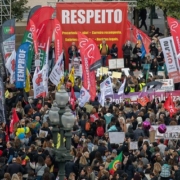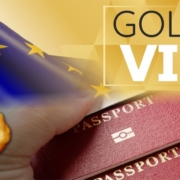Democracy
‘After years of EU support, Portugal is still a backward country’

What is the state of Portugal’s democracy in the year that centre-left prime minister António Costa took over the European Chairmanship and centre-right president Marcelo Rebelo de Sousa was re-elected on a second term in office with a clear 61% of the votes.

The PM holds the most executive power.The directly elected president has a more deliberative role as a warden of the constitution and head of the armed forces. The president also has the power to delay legislation, dissolve parliament and call for new elections. He or she ratifies international treaties, calls referendums and declares states of emergency.

Since it’s return from dictatorship to democracy in 1974 (Carnation Revolution), Portugal has a stable parliamentary democracy with a multiparty system and regular transfer of power between the two largest parties, the Socialist party (PS) and the Social democrats (PSD).
A new, anti-immigration and far-right party Chega ( ‘Enough’ ), however, is on the rise. Representing only 1% of the electorate in the 2019 elections – sufficient to gain a first-ever seat in Parliament – its leader André Ventura became third in the recent presidential elections with 12% of the votes, just behind the socialist veteran Ana Gomes.

Ventura’s performance makes clear that he has emerged as a political force in Portugal and in this year’s upcoming municipal elections his ultranationalist and xenophobic party – by many viewed as fascist – is looking like a serious popular choice.
International studies praise the country for its political freedom and civil liberties. The Freedom House Research Institute in Washington DC ranks Portugal 10th globally and the Varieties of Democracy (V-Dem) Institute at the University of Gothenburg even 7th. Higher than say the UK or Germany but lower than the Scandinavian countries.

Portugal legalised abortion in 2007 and same-sex marriage in 2010. Parliament voted in January this year in favour of euthanasia, bringing the new law a step closer.
Although domestic violence remains a problem, perhaps the most serious concern is corruption involving bankers, judges and high ranking politicians. Other democratic worries include abusive conditions for prisoners, persistent racism – especially with the uniformed forces – and discrimination of the Roma.
On the Global Democracy Index 2020 – drawn up annually by the Economist – Portugal fell from a ‘full’ to a ‘flawed’ democracy, mainly due to restrictions imposed by the pandemic, a reduction in parliamentary debates and lack of transparency in the spending of EU recovery funds.

According to European Commissioner for Cohesion and Reform Elisa Ferreira, Portugal is still a backward country. In an online debate she emphasized that the billions to help the country recover from the coronavirus pandemic must be radically different from the past. ‘It has to be much more environmental, more digital and much more socially balanced’, she stated.
She further pointed out that the GDP per head in Portugal is extraordinary low. and that ‘no matter how much Lisbon grows, the rest of the country is too far behind to allow Portugal to take off.’
Stay healthy Fique saudável (pic Público/Sapo)

